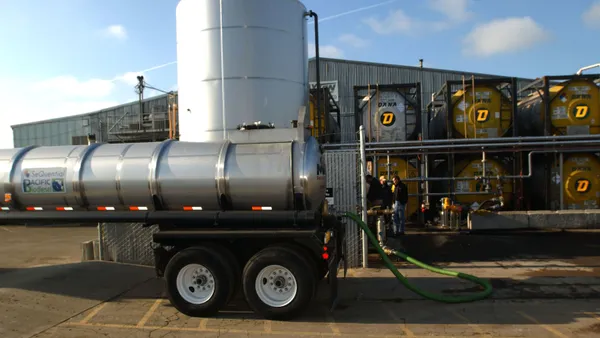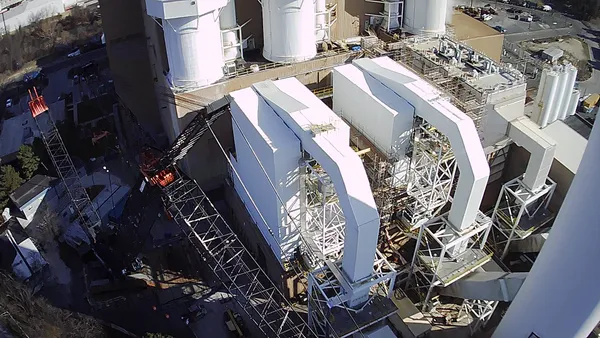Dive Brief:
- Some European countries burn about half of their solid waste for energy, in contrast to about 12% of waste burned for fuel in the US, which reflects different cultures and opposing views on solid waste management.
- Burning solid waste saves trash-hauling expenses, provides a cheap source of power, and does less harm to the environment than landfills, say proponents of this method. But opponents say WTE plants that burn trash are air pollutants and require expensive, high-tech air-pollution controls — capital that could be invested in waste-reduction and recycling efforts.
- While arguments continue over WTE plants vs. landfills, governments and businesses are focusing on another approach: promoting waste reduction by putting more responsibility on manufactures, distributors, consumers, and governments.
Dive Insight:
The discussion of trash as a renewable energy source is one that has built heated debates in some states. In Arizona, the controversy is ongoing: state utility regulators are standing by garbage qualifying as renewable energy, while the Sierra Club argues that an incinerator does not qualify for this status.
Groups like the Sierra Club argue that it’s a stretch to say that trash counts as a renewable energy source. While dumping on landfills indisputably poses public health risks and harms the environment, there is no solid proof that burning trash cannot do the same. The unknowns have some concerned about the slowly growing number of trash-burning WTEs.
Meanwhile, in a time that the World Bank estimates that countries are generating 1.4 billion tons of municipal solid waste annually, environmentalists believe businesses, governments, and associated professionals need to change their practices. They call for recyclable merchandise packaging that is well labeled and has clear instructions. They call for consumers to become less dependent on disposable products, and to recycle and compost more. And they challenge governments to make these environmental efforts attainable through education and funding.














